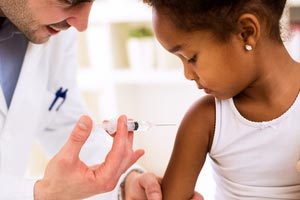4 Optional Child Vaccinations That You Might Want To Consider
 All throughout school, when enrolling in team sports and before going off to college, there are different mandatory vaccinations for kids and teens. There are also a number of vaccinations for children that are recommended but not mandatory, some of which have the potential to be life saving.
All throughout school, when enrolling in team sports and before going off to college, there are different mandatory vaccinations for kids and teens. There are also a number of vaccinations for children that are recommended but not mandatory, some of which have the potential to be life saving.
The Mandatory Vaccinations
Before your child starts kindergarten there are a number of vaccinations he or she should have already received, including:
-3 hepatitis B vaccinations
-Tetanus vaccine
-Haemophilus influenza type b vaccine (Hib)
-Inactivated poliovirus vaccine (IPV)
-Measles, mumps and rubella (MMR) vaccine
-Pneumococcal conjugate vaccine (PCV)
Schools require proof of vaccination records and can deny access to your child if they do not receive all required vaccinations. These vaccines are nearly impossible to get around unless your child is homeschooled or exempt for some reason. All mandatory vaccines are proven safe and effective at preventing a number of diseases that once wiped out entire populations.
Beneficial Childhood Vaccinations That Are Not Mandatory
#1. Rotavirus Vaccine (RV)
Rotavirus is highly contagious and has the potential to lead to severe dehydration and even death. It impacts infants and young children, and can cause extreme diarrhea, vomiting and fever. The international nonprofit healthcare organization PATH reports 450,000 deaths around the world per year of children under 5 caused by diarrheal disease associated with Rotavirus. Several million more children are sent to the hospital each year for the virus.
According to the CDC, most babies should be vaccinated with RV but not all are. RV comes in doses generally administered at 2, 4 and 6 months of age. The first dose must be administered before your child reaches 15 weeks, and the last should be administered by 8 months of age.
Babies that show an allergic reaction to the vaccination should not receive another dose. Babies with immune system problems, a bowel blockage known as intussusception, and babies with combined immunodeficiency (SCID) should not get the vaccination.
#2. Varicella Vaccine (Chickenpox Vaccine)
Years ago it was common for parents to expose their kids to chickenpox when they were young so that they’d get the infection early on. The thought behind this was that cases of the chicken pox increased in severity with age. These days, the chickenpox vaccine can prevent kids from getting it at all.
The Centers for Disease Control and Prevention (CDC) recommends all healthy children between 12 months and 12 years have two doses of the Varicella vaccine. The CDC advises giving the first shot between 12 and 15 months, and the second shot between 4 and 6 years.
Some states require the chickenpox vaccination for young children enrolled in school and young adults attending college, but not all states do. Even if your state does not require the vaccination, certain private organizations, schools and colleges still require the Varicella vaccine to enroll or participate.
Research has found this vaccine is both safe and effective. Serious side effects are rare.
#3. Hepatitis A Vaccine
Hepatitis A is a short-term disease of the liver with symptoms lasting for a few weeks to several months. The CDC recommends all children receive the necessary shots between their 1st and 2nd birthdays. Each shot should be administered 6 months apart.
Adults are sometimes advised to get the Hepatitis A vaccine as well, including people traveling to certain regions and those at an increased risk for contracting hepatitis A.
The hepatitis A vaccine is considered pretty safe. There are some mild side effects such as soreness of the injection site, loss of appetite, lethargy and headache. Serious allergic reactions are rare but must be treated at the ER at the first sign. Call 911 if you have hives, swelling of the face, dizziness, weakness, or an irregularly fast heartbeat a few hours post-injection.
#4. Meningococcal Vaccine (MCV)
Meningococcal disease is a severe bacterial illness that involves swelling of the brain and spinal cord (meningitis), and blood poisoning. Kids can spread meningococcal disease if they live in close quarters, kiss, inhale secondhand smoke from an infected individual or share utensils.
The CDC recommends children between 11 and 18-years of age receive the meningococcal vaccine (Menactra), which is administered in just one dose. College freshmen should be vaccinated prior to moving into dormitories. In fact, many college campuses require students to present proof of vaccination before they are allowed to live on campus.
Research shows that MCV is relatively safe. There are some mild side effects such as pain and redness at the injection site, as well as feeling tired, sore and/or having a headache.
The vaccine is not considered safe for anyone with a previous allergic reaction to meningococcal vaccines. The most severe, albeit rare, side effect is Guillain-Barre syndrome, a disorder that causes your immune system to damage its own nerve cells. Ultimately causing muscle weakness, permanent nerve damage and paralysis.
Visit Urgent Medical Center to get up to date on all of your vaccinations!
